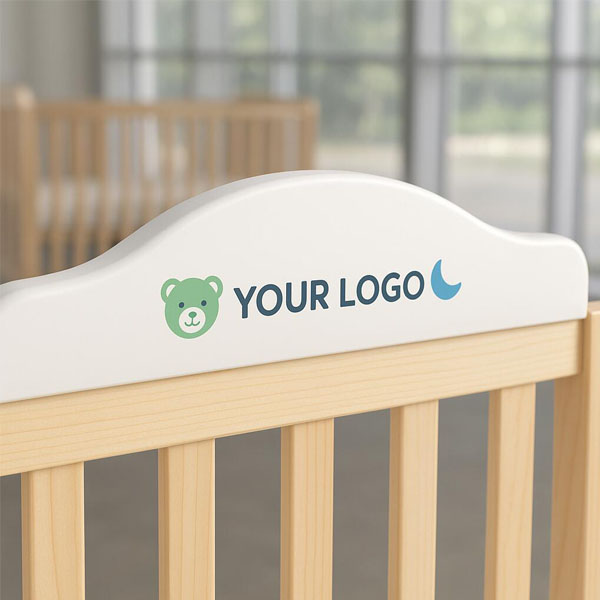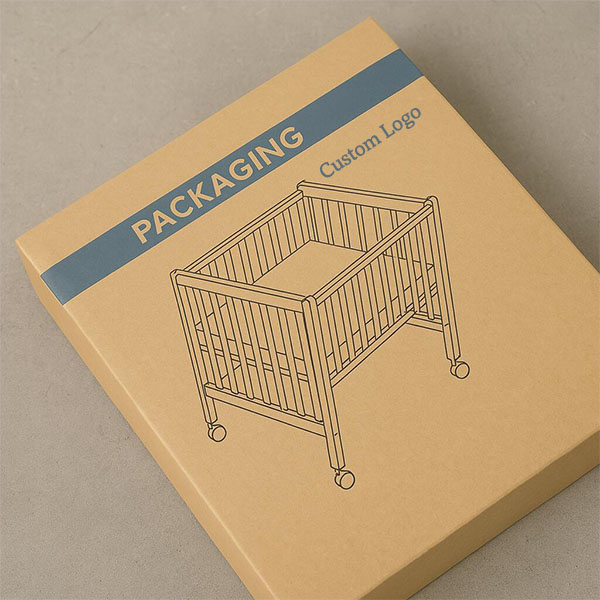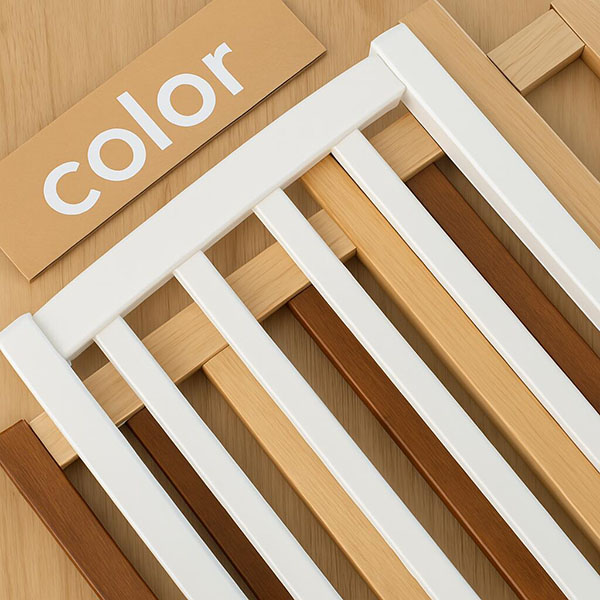Are Moses Baskets Good for Newborns?
They’re lightweight, beautiful, and cozy—but are Moses baskets really safe and practical for newborns?
Yes, Moses baskets are good for newborns when used safely and correctly. They provide a snug, portable sleep space for babies up to about 3–4 months old or until they begin rolling.
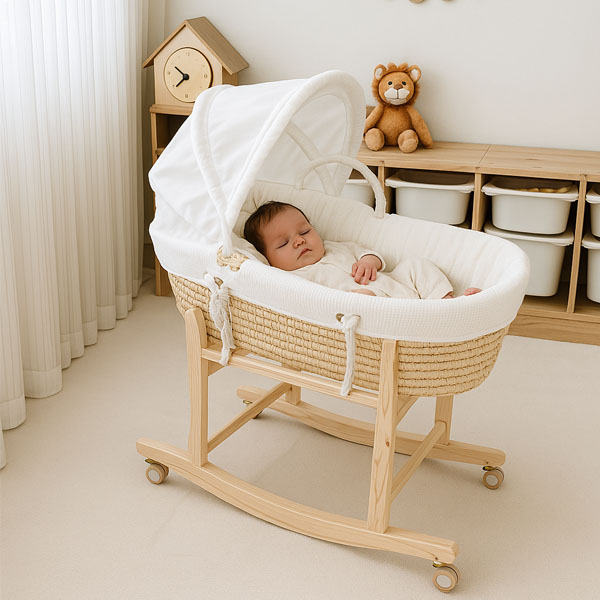
Let’s explore what makes Moses baskets a popular choice among parents, the safety rules you must follow, and how to choose the right one.
What Is a Moses Basket?
Not sure what makes it different from a bassinet or crib?
A Moses basket is a small, woven basket with handles and a fitted mattress. It is designed for newborns to sleep in during their first few months.
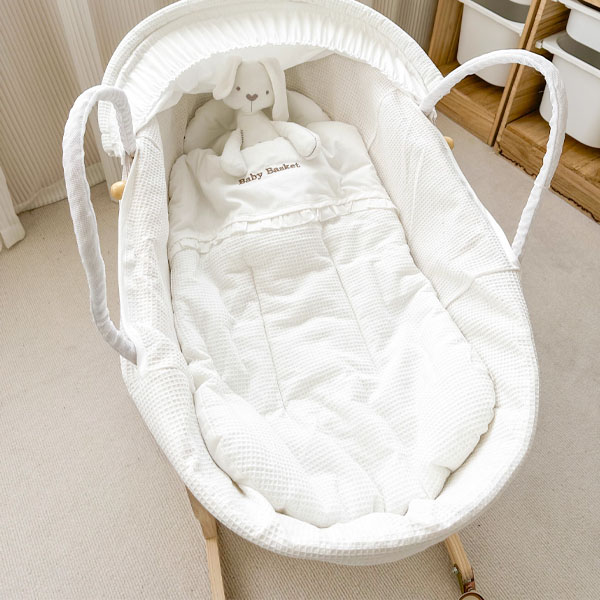
Key Characteristics
| Feature | Description |
|---|---|
| Material | Typically palm, maize, or wicker |
| Size | Compact, fits babies 0–3 months |
| Portability | Lightweight, easy to move between rooms |
| Base | Often used with a rocking or stationary stand |
| Mattress | Thin and firm, fits basket snugly |
The design mimics the snug environment of the womb, helping newborns feel secure.
Are Moses Baskets Safe for Sleep?
Yes—but only if you follow strict safety guidelines.
Moses baskets are safe for sleep as long as they have a firm mattress, breathable sides, and are placed on a flat, stable surface.
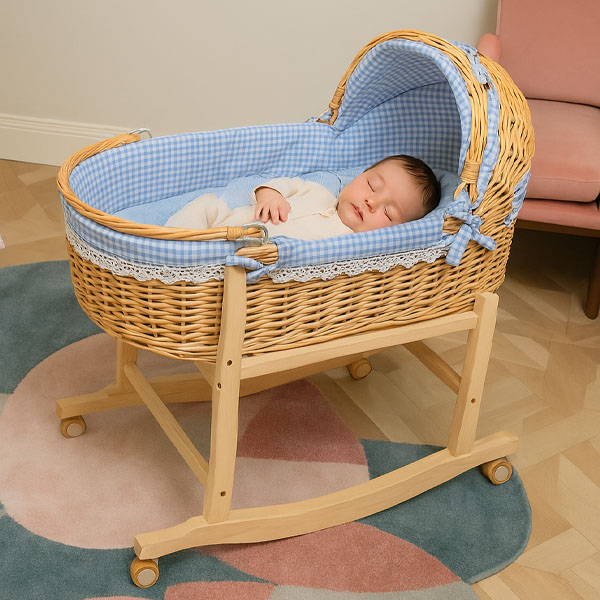
Safety Guidelines (AAP + WHO Compliant)
| Rule | Why It Matters |
|---|---|
| Use on flat surface or approved stand | Prevents tipping or collapse |
| Never use soft padding or pillows | Reduces risk of suffocation |
| Stop using when baby rolls or pushes up | Prevents falls or tipping |
| Always supervise during daytime naps | Quick response if baby shifts |
| Keep basket away from edges or stairs | Avoids fall hazards |
Note: Do not carry the basket with the baby inside, even if it has handles.
Pros and Cons of Moses Baskets
Is it worth getting one? That depends on your lifestyle and priorities.
Pros ✅
- Lightweight and portable
- Cozy for newborns
- Stylish addition to nursery
- Less expensive than full bassinets
- Natural, breathable materials
Cons ❌
- Short usage period (0–3 months)
- Not safe for unsupervised long sleep on soft surfaces
- Some lack sturdy bases or proper ventilation
- No wheels or advanced features like vibration/music
If you’re planning to room-share or want a sleeping space that can move easily from living room to bedroom, a Moses basket is a great option.
How Long Can a Baby Sleep in a Moses Basket?
Not long—but it serves its purpose well in those early weeks.
Babies can safely use Moses baskets until they’re around 3–4 months old, 15–18 lbs, or begin to roll over or push up on hands and knees—whichever comes first.
Signs It’s Time to Stop Using the Basket
| Sign | Action to Take |
|---|---|
| Baby rolling or scooting | Transition to crib |
| Baby over 15–18 lbs | Exceeds safe load |
| Baby wakes up cramped | Move to larger sleep space |
| Handles or base become loose | Retire immediately |
What to Look For When Buying a Moses Basket
Not all baskets are created equal—some are decor, not sleep-safe.
Choose a Moses basket with firm sides, a snug-fitting mattress, breathable materials, and no added padding or bumpers.
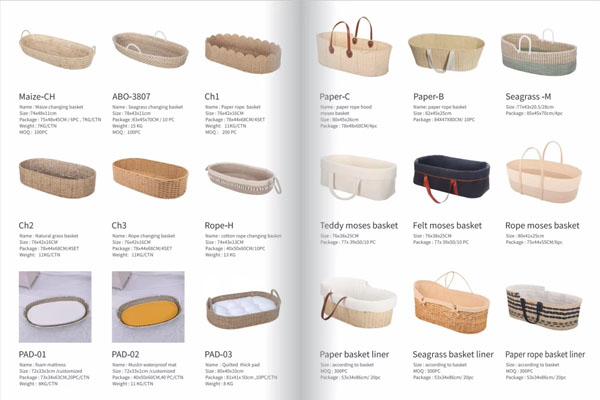
Buying Checklist
| Feature | Ideal Choice |
|---|---|
| Material | Natural palm or maize, not foam |
| Mattress | Thin, firm, breathable |
| Interior | No extra pillows, bumpers, or padding |
| Handles | Reinforced and secured tightly |
| Certification | Meets local sleep safety regulations |
Avoid “decorative” baskets meant for photo props—they are not safe for actual sleep.
What Does Craftsliving Offer?
At Craftsliving, we produce handcrafted wooden stands and Moses baskets using natural, breathable materials that blend tradition and modern safety standards.
Our products feature:
- FSC-certified wood bases
- Non-toxic, baby-safe finishes
- Reinforced handles and secure bases
- OEM & ODM options for retailers and brands
We help create baby gear that’s both functionally safe and naturally beautiful.
Conclusion
Moses baskets are a cozy, stylish, and safe sleeping solution for newborns—when used correctly. They offer a perfect start for your baby’s first few months, especially when space or portability matters most.









